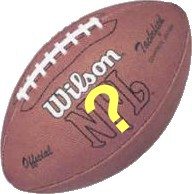Labor & Economy
Kickoff: L.A. Football and Good Jobs

At this very moment, Los Angeles has no professional football team and hasn’t since the Raiders and Rams both left in 1995. No club in the NFL has publicly acknowledged that it would consider moving here, although there’s always talk. Yet the Anschutz Entertainment Group has an ambitious project vying to be the home of a future Los Angeles football team, one that the city itself should push to have a stake in.
Rumors of an L.A. move have ballooned over the past year. Specifically, the San Diego Chargers have emerged as the most likely NFL team to move here, where they played their first season in 1960. They currently have a year-to-year lease at Qualcomm Stadium, which flooded last December. Their new stadium would be AEG’s yet-to-be-built Farmers Field in downtown, a large, open venue with a sleek design and a retractable roof. The economics are big, too. It is projected to hire between 20,000 and 30,000 people, and AEG has agreed to make all of those jobs union or at least living wage.
Also, Farmers Field could do much to better a community in dire straits. According to the Census Bureau’s American Community Survey, the median income in the downtown project’s site’s Census tract is $18,500 annually. The County Federation of Labor, as well as numerous business organizations and city officials, have endorsed Farmers Field, and a law signed by Governor Jerry Brown on September 27 put a five month deadline on any lawsuits regarding the stadium’s construction.
The stadium will be built. The team, however, may not arrive until the NFL expands. Depending on how soon the NFL owners would consider adding a new team to the league, expansion could have an added benefit for the people of Los Angeles: the possibility of municipal ownership.
A community-owned professional football club (the Green Bay Packers are the only one in the NFL) would have an astoundingly positive effect on Los Angeles. First, municipal ownership practically guarantees that a team will never, ever move. The citizens, the fans, are in charge, and ditching Los Angeles like so many teams have done in the past would be out of the question. Second, the organization is accountable to its owners, and by extension, the community as a whole. This ensures that the executives understand there’s more to a business than the bottom line, that creating positive change in this city is more important than wins and losses or record profits.
Even if a privately owned team comes to Los Angeles, there is still a chance for municipal ownership. But it has to be a part of the dialogue. it has to be well known by city government and by the owners that L.A. doesn’t just want a team. L.A. wants good jobs and a guarantee they’ll stay that way. The jobs are coming. The team is almost certainly coming too. It’s the guarantee, the insurance that our team’s business values will reflect our own civic virtues, that is absent from the stadium plans, the governor’s law and the news cycle.

-

 Column - State of InequalityJanuary 22, 2026
Column - State of InequalityJanuary 22, 2026On Eve of Strike, Kaiser Nurses Sound Alarm on Patient Care
-

 Latest NewsJanuary 21, 2026
Latest NewsJanuary 21, 2026Honduran Grandfather Who Died in ICE Custody Told Family He’d Felt Ill For Weeks
-

 Latest NewsJanuary 22, 2026
Latest NewsJanuary 22, 2026‘A Fraudulent Scheme’: New Mexico Sues Texas Oil Companies for Walking Away From Their Leaking Wells
-

 The SlickJanuary 23, 2026
The SlickJanuary 23, 2026Yes, the Energy Transition Is Coming. But ‘Probably Not’ in Our Lifetime.
-

 The SlickJanuary 27, 2026
The SlickJanuary 27, 2026The One Big Beautiful Prediction: The Energy Transition Is Still Alive
-

 Column - State of InequalityJanuary 29, 2026
Column - State of InequalityJanuary 29, 2026Are California’s Billionaires Crying Wolf?
-

 Latest NewsFebruary 3, 2026
Latest NewsFebruary 3, 2026Amid the Violent Minnesota Raids, ICE Arrests Over 100 Refugees, Ships Many to Texas
-

 Dirty MoneyJanuary 30, 2026
Dirty MoneyJanuary 30, 2026Amid Climate Crisis, Insurers’ Increased Use of AI Raises Concern For Policyholders

